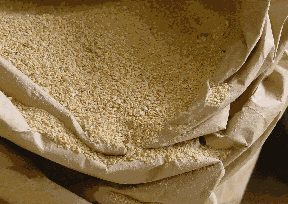AFBI studies lupins in poultry diets

Soyabean meal is the main source of protein in diets for poultry due to its high crude protein content and its good profile of amino acids. However, as soyabean meal must be imported, home grown protein sources such as lupins have been considered as alternatives.
Lupins can contain up to 44% crude protein. Previous research has shown they can be included in poultry diets with no adverse effects on performance provided the diets are supplemented with expensive synthetic amino acids. There is a lack of information on the use of low levels of lupins in poultry diets as a direct substitution for soyabean meal, without additional amino acid supplementation.
The aims of studies conducted at Agri-Food and Biosciences Institute (AFBI), Hillsborough and Newforge and funded by the Department of Agriculture and Rural Development were to investigate the effect of substitution of a proportion of soyabean meal with lupins on poultry performance.
Broiler performance
Three diets were produced to contain 0, 3 or 6% lupins and offered to 300 broilers in pens of 20 from 0-35 days of age to determine performance. Apparent metabolizable energy was determined in a separate trial using 60 broilers and collecting excreta from 14 to 21 days. There was no difference in diet AME content but lupin inclusion reduced feed intake, daily gain, feed conversion efficiency and final live weight at 35 days.
Again the reduction in performance can be attributed to reduced feed intake of the diets containing lupin.
Conclusion
Lupin inclusion reduced feed intake and growth rate in poultry, and there is limited potential for lupins to be used as an alternative protein source.
Source: Agri-Food and Biosciences Institute (AFBI)













